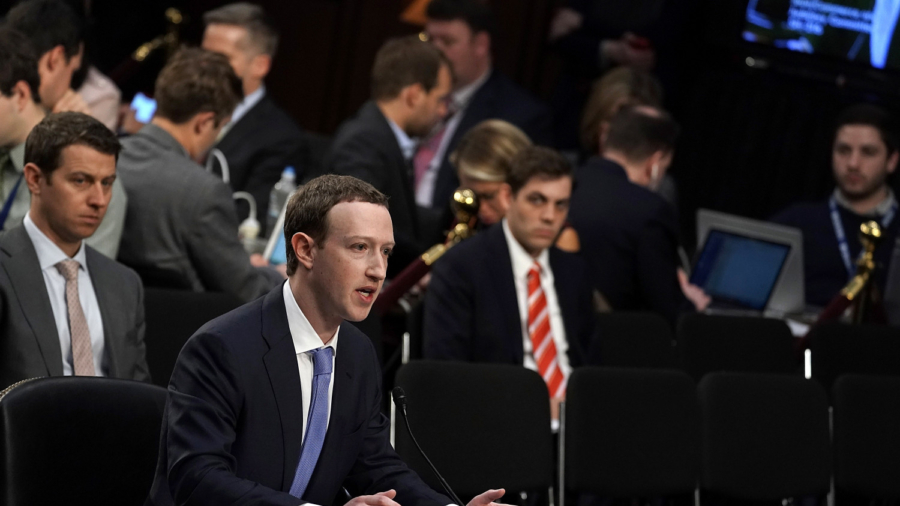![]()
Facebook founder and CEO Mark Zuckerberg took full responsibility for his company’s role in the use of private user data by Cambridge Analytica in his testimony before the Senate on Tuesday, April 10.
Zuckerberg described Facebook as an “idealistic and optimistic company” which focuses on the positive aspect of connecting people.
“But it’s clear now that we didn’t do enough to prevent these tools from being used for harm as well,” Zuckerberg said. “We didn’t take a broad enough view of our responsibility, and that was a big mistake. It was my mistake, and I’m sorry. I started Facebook, I run it, and I’m responsible for what happens here.”
Facebook acknowledged that up to 87 million people, mostly in the United States, had their personal information harvested from the site by Cambridge Analytica, a political consultancy. Cambridge Analytica disputes Facebook’s estimate of the number of people affected.
“Across the board, we have a responsibility to not just build tools, but to make sure those tools are used for good,” Zuckerberg said. “It will take some time to work through all of the changes we need to make, but I’m committed to getting it right.”
Congress is considering looking into laws to regulate Facebook. Anticipating such a move, the company has already said it favors new legislation that would make social networks disclose who is behind political ads, much as TV and radio stations must already do.
Facebook disclosed in September that Russians under fake names had used the social network to try to influence U.S. voters in the months before and after the 2016 election, writing about inflammatory subjects, setting up events, and buying ads.
In February, U.S. Special Counsel Robert Mueller charged 13 Russians and 3 Russian companies with interfering in the election by sowing discord on social media. Deputy Attorney General Rod Rosenstein said the Russians did not succeed in influencing the election.
Facebook’s data practices are under investigation by the U.S. Federal Trade Commission.
Zuckerberg concluded his remarks on a positive note.
“I believe in what we’re doing,” he said. “And when we address these challenges, I know we’ll look back and view helping people connect and giving more people a voice as a positive force in the world.”
Reuters contributed to this report.
Recommended Video:


